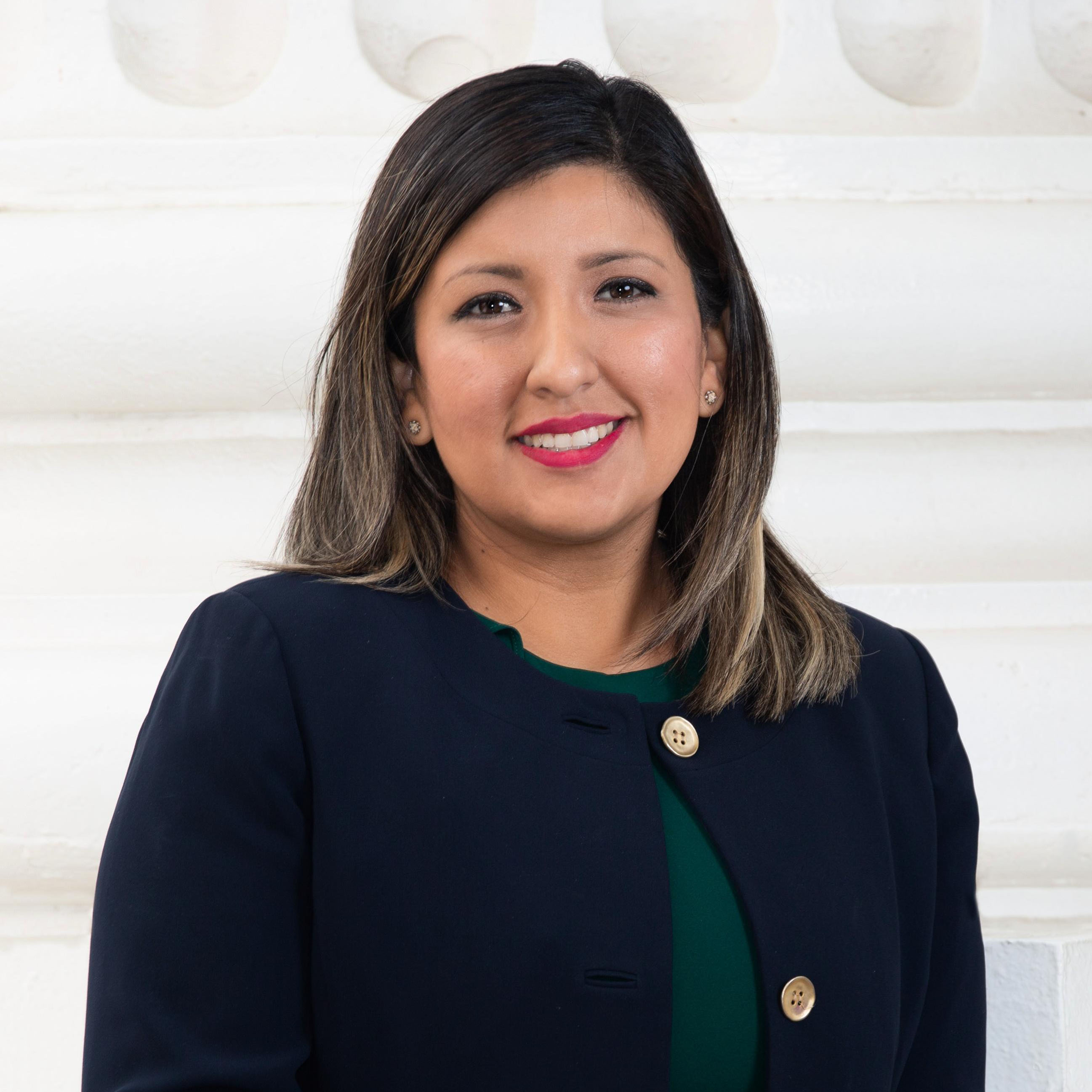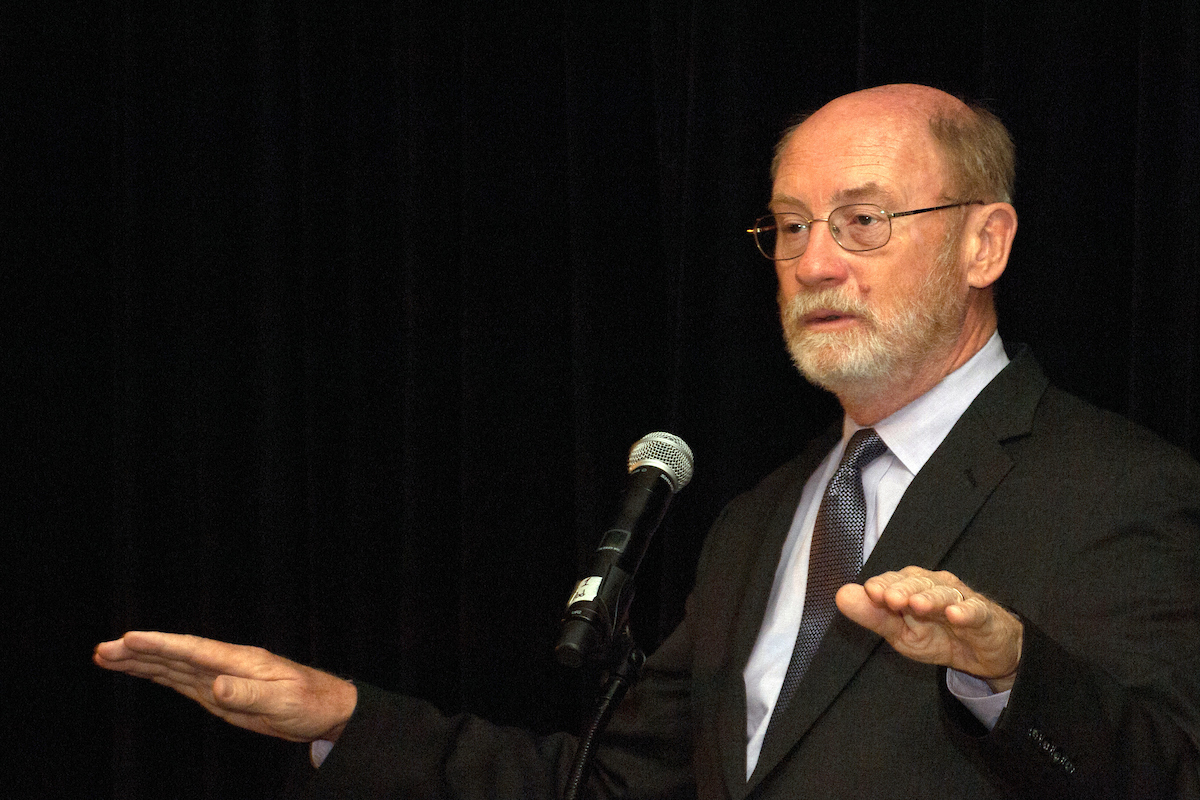State Senator Melissa Hurtado of Sanger has spent three years refining her arguments for financing critical repairs to water conveyance infrastructure in the San Joaquin Valley. During a committee hearing last week, Hurtado stood ready to refute the longstanding argument that the beneficiaries should cover the entire cost—a critique that played a part in the demise of her previous measure to fix the Friant-Kern Canal.
“I'm here because we are on the verge of a global food crisis that requires immediate action,” said Hurtado. “My bill, SB 559, the State Water Resiliency Act, will help prevent a global catastrophe.”
The 2021 version of the bill is more ambitious and takes aim at the state’s record budget windfall by doubling the funding to nearly $800 million and broadening the scope to address maintenance needs for the Delta-Mendota Canal and the California Aqueduct. Hurtado pointed to a federal effort led by California Senator Dianne Feinstein and Central Valley Rep. Jim Costa, who have introduced new legislation in Congress proposing more than $600 million in matching funds for the canals. Hurtado also noted that the Friant Water Authority has gathered more than $175 million from local agencies and nearly $250 million in existing federal funding to contribute to repairing the Friant-Kern Canal. The lawmakers plan to split the costs for all repairs evenly among state, federal and local agencies.
“SB 559 creates a framework for the state to take on its rightful role in partnering with local agencies and federal government,” said Hurtado.
The canals have experienced as much as a 60% reduction in flow, due largely to subsidence that resulted from the last drought. It has led to as much as $30 million a year in additional power and operational costs. Investing in the maintenance, explained Hurtado, would add nearly 13,000 direct jobs and another 25,000 indirectly over 10 years.
“It will also preserve thousands more that could be lost if the lack of water leads to fallowed lands,” she said.
Hurtado also made a case for protecting safe drinking water for Californians.
“We're talking about Americans, real people, that have been significantly impacted by just a lack of water,” she said. “In 2018 I saw firsthand—in a nondrought year—the damage that it does to real people not having water.”
Ricardo Ortega, general manager of the Grassland Water District, said the repairs would offer environmental benefits as well, leading to additional water deliveries to the wildlife refuges within his district.

Sen. Melissa Hurtado, D-Sanger
“Subsidence along these canals threatens their ability to provide enough water to the habitat and to keep wildlife populations healthy,” explained Ortega.
Invariably, Sen. John Laird of Santa Cruz, who served as Natural Resources secretary during the Brown administration and now chairs the Natural Resources and Water Committee, where the bill was heard, said that California has held to a historic beneficiary pays policy.
“The water project itself was 97% paid for by the water users and 3% by the state taxpayers,” he said. “This is a logical thing for the users to pay.”
Laird reasoned the fact that the canals serve drinking water to 31 million people and irrigation water to three million acres of farmland meant the costs could be spread broadly, making it more affordable. As with previous opponents of Hurtado’s bills, Laird argued state money should not go to a federal project unless all Californians benefit, including the farmers in his district who do not import water.
“In many ways, it favors one agricultural area over another,” he argued. “And if you're a disadvantaged community that is not served by state or federal water, you are even more disadvantaged for paying taxes and not getting anything back.”
Anticipating the beneficiary pays argument, State Water Contractors General Manager Jennifer Pierre said the reduced deliveries have already been costing millions of water users who played no role in the destruction of the canals.
“Identifying all the parties who are responsible for damaging this infrastructure and securing their funding contributions is a complex and lengthy undertaking,” said Pierre. “The repair costs are simply too great for [water users] to bear alone.”
Many Central Valley lawmakers have grown increasingly frustrated over the lack of state funding to address aging infrastructure across the valley.
“We basically inherited a big mess,” said Sen. Ben Hueso of Logan Heights. “We've been sitting here for 10 years discussing this restoration. And what has the state done in response to it until today? Really nothing. And that's a shame.”
Hueso said the beneficiary pays argument assumes those water users did something wrong. He said one of those beneficiaries is the environment, since species are now threatened due to the canals not flowing properly.
“This is really about the whole ecosystem of our entire California estuary, which extends from Los Angeles all the way to Mount Shasta,” he said. “It's hard to find another one in the world.”

Sen. John Laird, D-Santa Cruz
Hueso pointed out how the disrepair has led to saltwater intrusion that is now inhibiting food production in coastal areas.
Interested in more coverage and insights? Receive a free month of Agri-Pulse West
Republican Sen. Shannon Grove of Bakersfield shared her frustration and agreed with Hurtado on the threat to food security.
“The Central Valley has the top three food producing counties in the world—not in the nation, not in the state—in the world,” said Grove. “We very well could be on the verge of a food crisis.”
She said the end users have been taking a huge risk in putting together the matching funds for the repairs, arguing they put tax dollars into the Proposition 1 bond for water infrastructure that has not delivered more water to them.
“I was one of the people who worked on the 2014 water bond,” said Sen. Susan Eggman of Stockton. “We had high hopes that that was going to do perhaps more than it did. One of the tenants we made in there was that all areas of the state be treated equally.”
Calling it a bipartisan issue, Grove referenced infrastructure funding efforts by Feinstein, Costa, former President Donald Trump, Republican Rep. Kevin McCarthy of Bakersfield and President Joe Biden.
“It's amazing to me,” said Grove. “With all these powerful people that have the opportunity on both sides of the aisle to be able to fix this situation, we can't ever seem to get it done.”
With the debate closed, Laird ultimately voted in favor of the bill, though three other Democrats abstained. The measure now faces a critical hurdle next week with the first appropriations hearing, where Hurtado’s previous bill stalled twice before being vetoed by Gov. Gavin Newsom.
For more news, go to www.Agri-Pulse.com.


